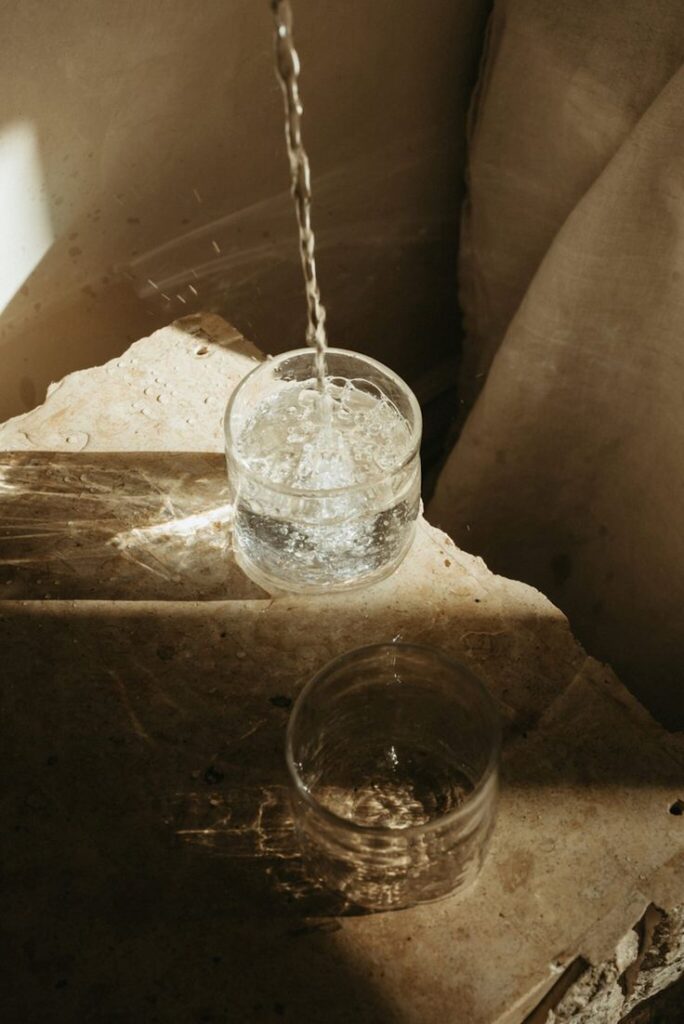Toxic Truths: Alcohol, Dopamine & The Manipulation of the Human Brain
By Georga Gorrell, Psychotherapist

Alcohol is everywhere, in the UK, it’s embedded in British culture, from celebrations and post-work drinks to weekend wind-downs. It’s framed as a way to relax, socialise, and take the edge off stress. But behind the cultural normalisation lies an inconvenient truth, alcohol is a neurotoxin that disrupts brain chemistry, depletes essential neurotransmitters, and keeps people trapped in cycles of stress, anxiety, and trauma.
The Dopamine Trap: Why Alcohol Feels Good (At First)
The first drink is deceptive. It feels good, because it is, temporarily. Alcohol causes a surge in dopamine, the neurotransmitter responsible for motivation, pleasure, and reward. This is why the first sip of a cocktail on a Friday night feels like a switch has flipped. But the brain, in its constant pursuit of balance, doesn’t allow this high to last.
Studies show that alcohol-induced dopamine spikes are followed by a crash, leading to lower baseline dopamine levels over time (Volkow et al., 2010). This is why people feel worse the next day, not just because of dehydration, but because their brain chemistry has been altered. Over time, repeated alcohol consumption can lead to dopamine system dysregulation, contributing to low mood, anxiety, and even depression (Koob & Le Moal, 2008).
In other words, alcohol gives with one hand and takes with the other, only what it takes is far more significant.
The Anxiety-Alcohol Cycle: A Vicious Loop
Many people drink to relieve stress or social anxiety, believing alcohol helps them relax. In reality, it does the opposite.
Alcohol suppresses the activity of glutamate (a neurotransmitter responsible for alertness) while enhancing GABA (which promotes relaxation). This is why alcohol initially makes people feel calm. But the problem is that once alcohol is metabolised, the body overcompensates, increasing glutamate and decreasing GABA, leading to heightened anxiety, restlessness, and even panic (Lovinger, 2008).
This “rebound effect” is why people experience post-drinking anxiety or “hangxiety.” It’s also why regular drinkers often feel more anxious over time, even when sober. The brain becomes reliant on alcohol for relaxation, and without it, anxiety intensifies.
Alcohol & Trauma: A False Cure
For those with unresolved trauma, alcohol can become a form of self-medication. Trauma survivors often have dysregulated nervous systems, swinging between hyperarousal (anxiety, hypervigilance) and hypoarousal (numbness, dissociation). Alcohol momentarily soothes this imbalance, but at a cost.
Research shows that people with PTSD are significantly more likely to struggle with alcohol dependence (Stewart et al., 2000). This is because alcohol artificially regulates the nervous system, acting as a chemical coping mechanism. But long-term, it disrupts the brain’s ability to self-regulate, making trauma symptoms worse.
Healing from trauma requires nervous system regulation, not numbing agents that provide temporary relief while deepening the dysfunction.
The Social Lie: Why Alcohol is Marketed as Self-Care
If alcohol is so damaging, why is it everywhere? The answer is simple: profit. The alcohol industry is worth over £1.5 trillion globally, and its survival depends on people drinking regularly.
Alcohol is marketed as self-care and relaxation, despite the fact that it does the opposite. A 2022 study found that alcohol increases cortisol (the stress hormone) even in small amounts, meaning that the glass of wine people drink to “unwind” may actually be making them more stressed (Sinha et al., 2022).
Alcohol companies don’t just sell a drink; they sell a lifestyle, an identity. “Wine mom” culture, post-work drinks, party shots; all of these reinforce the idea that alcohol is essential for connection, relaxation, and even empowerment. But in reality, it numbs emotions, can cause disruption in relationships, and erodes mental clarity.
So, Should You Stop Drinking Completely?
While the research is clear that alcohol is harmful, the decision to drink (or not) is personal. The key is awareness. The more we understand how alcohol impacts the brain, the more intentional we can be with our choices.
For those struggling with anxiety, low mood, or trauma, reducing or eliminating alcohol could be one of the most powerful mental health interventions. True relaxation, connection, and healing don’t come from a bottle, but from nervous system regulation, real human connection, and a lifestyle that supports brain health.
Join the conversation
Trauma Therapy values your comments but kindly requests all posts are on topic, constructive and respectful.
